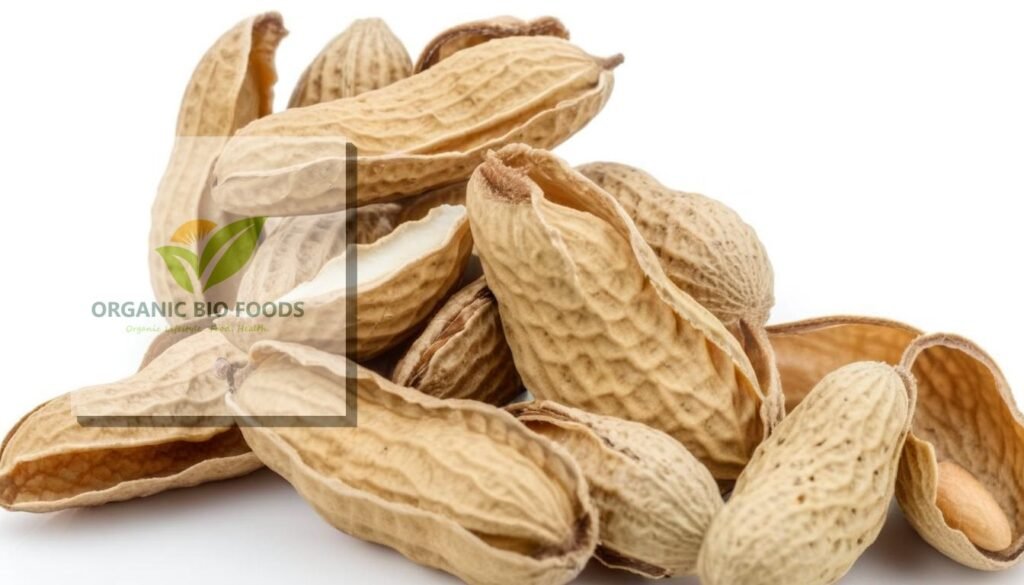When you snack on peanuts, you might toss away the shells without a second thought. However, peanut shells have plenty of uses, especially in gardening. By using peanut shells creatively, you can enhance your garden’s health and reduce waste. In this post, we’ll dive into the many benefits of using peanut shells in your garden and explore some clever ways to utilize them.
Why Peanut Shells Are Great for Your Garden
Peanut shells are not just lightweight and easy to handle—they also contain important nutrients that benefit the soil and plants. Rich in carbon, peanut shells can be a valuable addition to compost piles and help improve soil structure. Additionally, they help with moisture retention, keeping your garden hydrated during dry spells.
Key Benefits of Peanut Shells:
- Moisture retention: Peanut shells can help hold water in the soil, keeping your plants hydrated.
- Soil aeration: Their fibrous nature allows for better airflow in the soil, helping roots grow.
- Eco-friendly: By recycling peanut shells, you reduce waste and lower your environmental impact.
- Low-cost gardening: Using peanut shells in your garden is a cost-effective alternative to expensive mulch or soil enhancers.
1. Use Peanut Shells as Mulch
One of the simplest and most effective ways to use peanut shells in the garden is as mulch. Mulch serves multiple purposes, including controlling weeds, keeping moisture in the soil, and improving soil health over time. Peanut shells break down slowly, so they make a long-lasting mulch.
How to Use Peanut Shell Mulch:
- Spread a 2- to 3-inch layer of peanut shells around your plants, especially in flower beds and vegetable gardens.
- Make sure to keep the shells away from the stems of plants to prevent rot.
- Over time, the peanut shells will decompose and add organic matter to the soil, further enriching it.
Peanut shell mulch also helps protect the soil from temperature extremes, keeping the roots of your plants cooler in the summer and warmer in the winter .
2. Composting with Peanut Shells
Peanut shells are an excellent addition to your compost pile. They provide a good balance of carbon, which helps break down nitrogen-rich materials like food scraps and grass clippings. This balance is essential for creating nutrient-rich compost that can be used to feed your plants.
How to Compost Peanut Shells:
- Crush or shred the peanut shells to speed up the decomposition process.
- Add them to your compost pile or bin, making sure to mix them with green waste like vegetable peels, grass clippings, and coffee grounds.
- Turn the compost regularly to ensure proper aeration and breakdown of materials.
Peanut shells can take a while to break down, but they’re worth the wait. Once decomposed, they’ll provide your garden with valuable organic matter, helping to improve soil fertility and structure .
3. Create a Peanut Shell Potting Mix
You can also use peanut shells in homemade potting mixes. Because peanut shells are fibrous and lightweight, they improve soil aeration, allowing for better root growth. Adding peanut shells to your potting mix helps create a loose, well-draining soil that’s perfect for plants.
How to Make Peanut Shell Potting Mix:
- Start by crushing the peanut shells.
- Mix the crushed shells with compost, soil, and other organic materials.
- Use the mix for potted plants or to start seedlings.
The peanut shells will gradually break down, releasing nutrients into the soil and helping plants thrive. Plus, the fibrous texture of the shells ensures that your potting soil remains loose and well-aerated .
4. Use Peanut Shells to Deter Garden Pests
One lesser-known use of peanut shells is as a natural pest deterrent. The rough texture of the shells can discourage some garden pests, such as slugs and snails, from getting too close to your plants. This is especially helpful if you have a vegetable garden and want to keep pests away without resorting to harsh chemicals.
How to Use Peanut Shells for Pest Control:
- Crush or break up the peanut shells into smaller pieces.
- Sprinkle the shells around the base of your plants, especially those most vulnerable to pests.
- The shells create a barrier that pests are reluctant to cross due to their sharp edges.
While peanut shells won’t eliminate all pests, they can be a part of an integrated pest management system, reducing the need for chemical pesticides .
5. Improve Soil Drainage with Peanut Shells
If your garden has heavy, clay-like soil that tends to retain water and become compacted, peanut shells can help. When added to the soil, they create air pockets that improve drainage and prevent waterlogging, which is especially beneficial for plants that prefer well-drained soil.
How to Improve Drainage Using Peanut Shells:
- Crush the peanut shells to help them blend into the soil more easily.
- Mix the crushed shells into the top few inches of soil.
- Alternatively, you can mix peanut shells with compost and add them to the soil to improve both fertility and drainage.
Over time, the peanut shells will decompose, adding organic matter to the soil and making it easier for plant roots to grow. This is especially useful for container gardens and raised beds .
6. Use Peanut Shells in Pathways
Another creative way to use peanut shells in your garden is to spread them on garden pathways. Peanut shells are lightweight and help prevent soil erosion, making them ideal for garden paths. They also provide a natural, eco-friendly alternative to gravel or other pathway materials.
Steps to Create a Peanut Shell Pathway:
- Spread a thick layer of peanut shells along your garden pathway.
- Press them down gently to create an even surface.
- Over time, the peanut shells will break down, but you can always add more as needed.
This method works particularly well in smaller garden areas and provides a rustic, natural look to your outdoor space .
Final Thoughts
Peanut shells are a versatile, eco-friendly resource that can help your garden in many ways. From improving soil health to reducing pests, they offer a low-cost, natural solution to common gardening problems. So, the next time you snack on peanuts, think twice before tossing those shells—they might just be the secret ingredient your garden needs to thrive!








